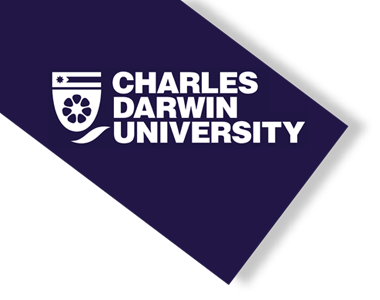Bachelor of Education (Graduate Entry)
Charles Darwin University
About
The Bachelor of Education (Graduate Entry) is a teacher education course that aligns with the Australian Professional Standards for Graduating Teachers.
This two-year course offers specialised professional knowledge and skills in teacher education for those who have a non-education Bachelor degree.
The program is designed to develop professional knowledge and skills to prepare students for new and changing educational roles as educators;
to develop reflective practitioner skills;
to ensure continuing awareness of the environmental and cultural influences on teaching and learning, and to better understand the needs of learners and communities with diverse linguistic and cultural orientations, including Indigenous learners.
Graduates of this course will possess levels of personal literacy and numeracy broadly equivalent to the top 30% of the population.
Primary teaching stream offers primary specialisations in subject areas.
Applicants can apply for one of three educational streams:
early childhood/primary teaching, primary teaching and secondary teaching.
The early childhood and primary teaching stream has an early childhood focus yet is designed to allow graduands the flexibility for teaching in either early childhood or primary school settings.
This course will also be suited to those who are seeking to upgrade their teaching qualifications in either early childhood, primary or secondary school teaching.
Teacher Professional Assessment (TPA) would be met during the course.
Students are encouraged to review the employer eligibility requirements as they can vary state to state.
Structure
Compulsory Core(16 units) - 160
Compulsory Core Units totalling 160 credit points selected from units detailed below: ECL123 Mathematics in Early Years (new unit title 2020) EPE110 Professional Experience: Teaching for Learning (replaced by EPE111 from 2020) ECU204 Technology and Design for Education (new unit title 2015) ELA200 English Language and Literacy in Education 2 ELA201 Teaching English as an Additional Language EMA200 Mathematics Education 2: Curriculum and Pedagogy in Primary Mathematics EPE210 Professional Experience: Learner Development (replaced by EPE211 from 2020) ESC220 Science in Education EST203 Teaching Indigenous Learners ECE300 Play, Pedagogies and Philosophies in Early Childhood ECE310 Leadership, Advocacy and Research ECL300 Approaches to Literacy in the Early Years ECU301 Humanities and Social Science Pedagogy (new title 2018) ECU311 Arts, Health and PE for the Early Years EPE310 Professional Experience: Learning for All (replaced by EPE314 from 2020) EST303 Special Needs in the Classroom (recoded from EST301 2018)
Specialist Electives(0 units) - 0
There are no Specialist Elective Units for this course
Electives(0 units) - 0
There are no Elective Units for this course
- 160
Total Credit Points
Entry requirements
Early Childhood and Primary Teaching Successful completion of a recognised Bachelor degree or equivalent in either early childhood/primary or an area relevant to early childhood/primary curriculum, such as art, music, technologies, English, health and physical education, mathematics, science or humanities and social sciences (e.g. history and geography). Primary Teaching Successful completion of a recognised Bachelor degree or equivalent with at least one year equivalent full time in an area relevant to primary curriculum, such as art, music, technologies, English, health and physical education, mathematics, science or humanities and social sciences (e.g. history and geography). Secondary Teaching Successful completion of a recognised Bachelor degree or equivalent comprising of a major sequence and minor a sequence in two of the following secondary teaching areas: English, legal studies, Indigenous studies, accounting, business studies, economics, geography, history, mathematics, languages other than English, music, technologies, visual arts, chemistry, biology/ecology, environmental science, physics and health and physical education. A major sequence is defined as one quarter of a three-year degree and a minor sequence is defined as one sixth of a three-year degree. Note: applicants who have completed a major sequence in a teaching area but do not meet the minimum requirements of one sixth in a second teaching area are required to contact the School of Education on education@cdu.edu.au for advice prior to submitting an application.
Institution
